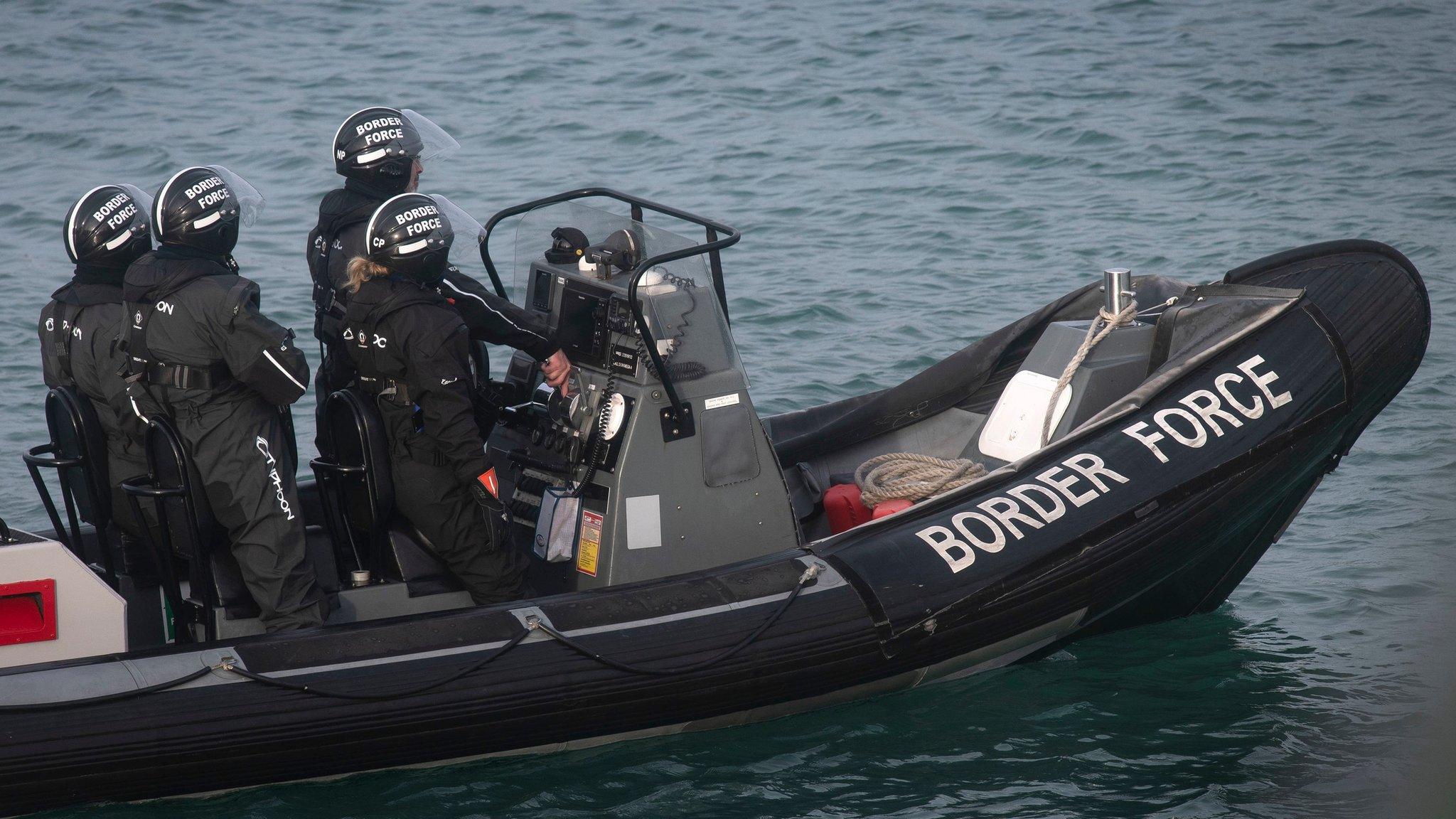Channel migrants: Five children among 29 intercepted
- Published
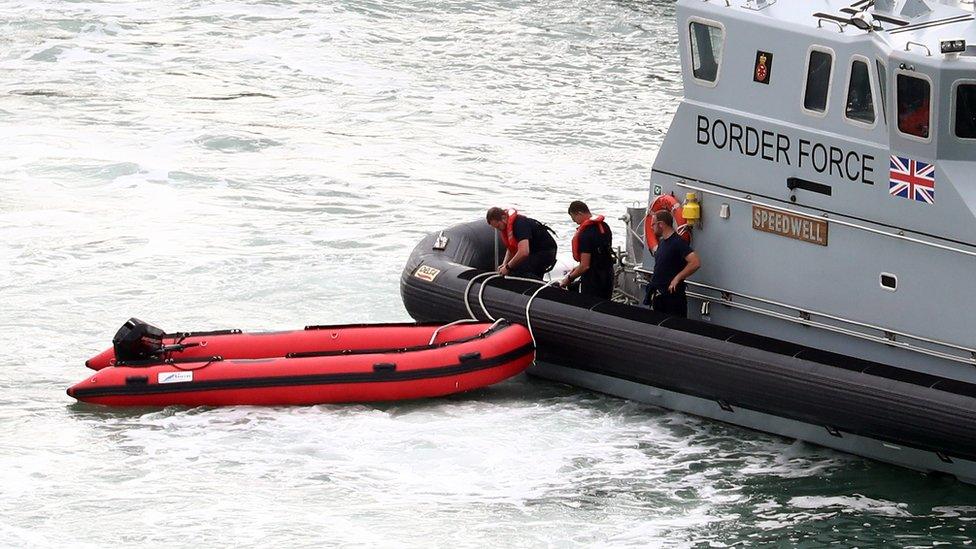
Two children were on one boat intercepted off the Kent coast
Authorities have intercepted 29 migrants in the English Channel, including five children.
One boat was spotted off Kent at about 04:30 BST with eight men, one woman and two children on board. They all identified as Iraqi and Iranian nationals, the Home Office said.
A second boat was carrying three women, 11 men and two children at 08:30 BST. Their nationalities are not yet known.
After an incident near Hastings, a woman and another child were detained.
The Home Office said Sussex Police dealt with the incident at Fairlight Beach on Monday afternoon.
A spokesman said the nationalities of the woman and child were not yet known, but both were handed to immigration officials.
Both groups of people found in the boats - which were both intercepted by Border Force cutters - were taken to Dover and medically assessed and found to be well before they were transferred to immigration officials, the Home Office said.
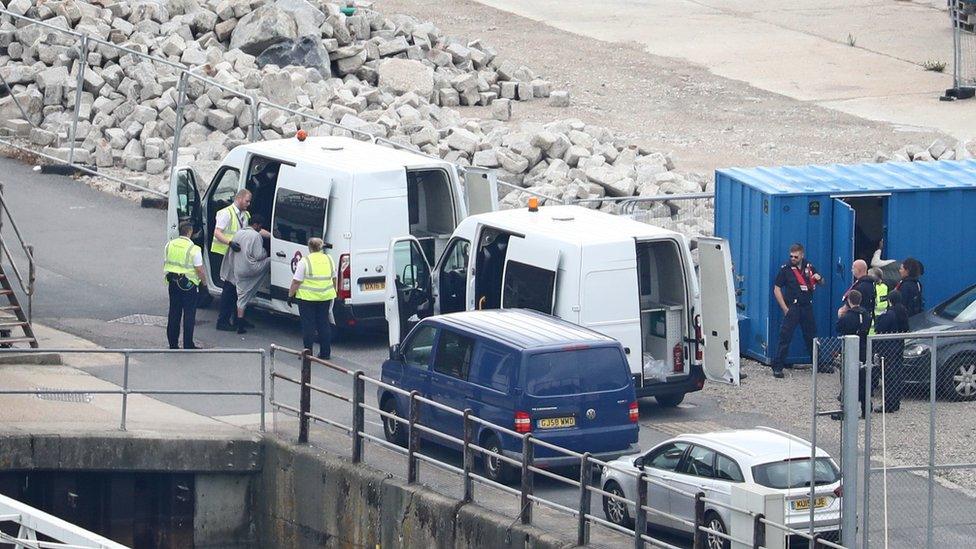
A group of 11 men, women and children were brought ashore and handed over to immigration officials, the Home Office said
French authorities also picked up a boat in the early hours.
Nine people were found in the vessel at 04:20 BST - the boat was taking in water and was intercepted by the French coastguard about 1km off Cape Gris-Nez.
The six men, one woman and two children were taken to Boulogne-sur-Mer and handed to police.
At least 1,264 people have crossed the Channel in small boats this year.
On Sunday four boats carrying 41 migrants were intercepted, including a kayak carrying two men.
The Home Office also said 75 migrants who entered the UK illegally since January have been returned to Europe.
A note on terminology: The BBC uses the term migrant to refer to all people on the move who have yet to complete the legal process of claiming asylum. This group includes people fleeing war-torn countries, who are likely to be granted refugee status, as well as people who are seeking jobs and better lives, who governments are likely to rule are economic migrants.

Follow BBC South East on Facebook, external, on Twitter, external, and on Instagram, external. Send your story ideas to southeasttoday@bbc.co.uk.
- Published15 September 2019
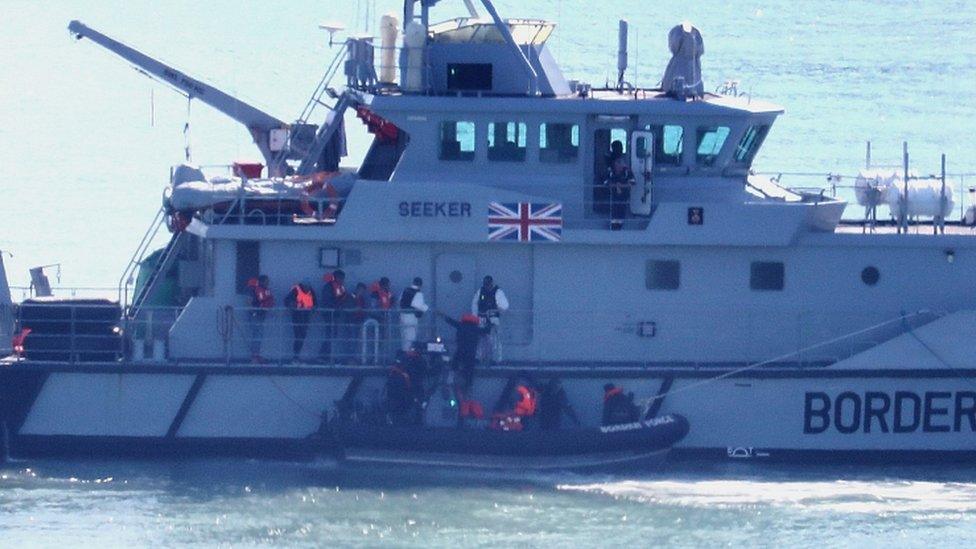
- Published11 September 2019
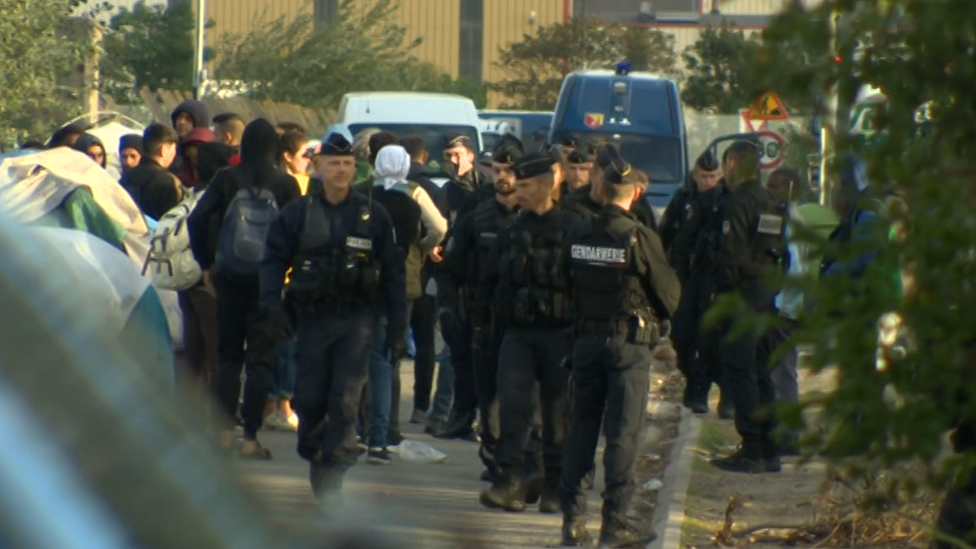
- Published9 September 2021
